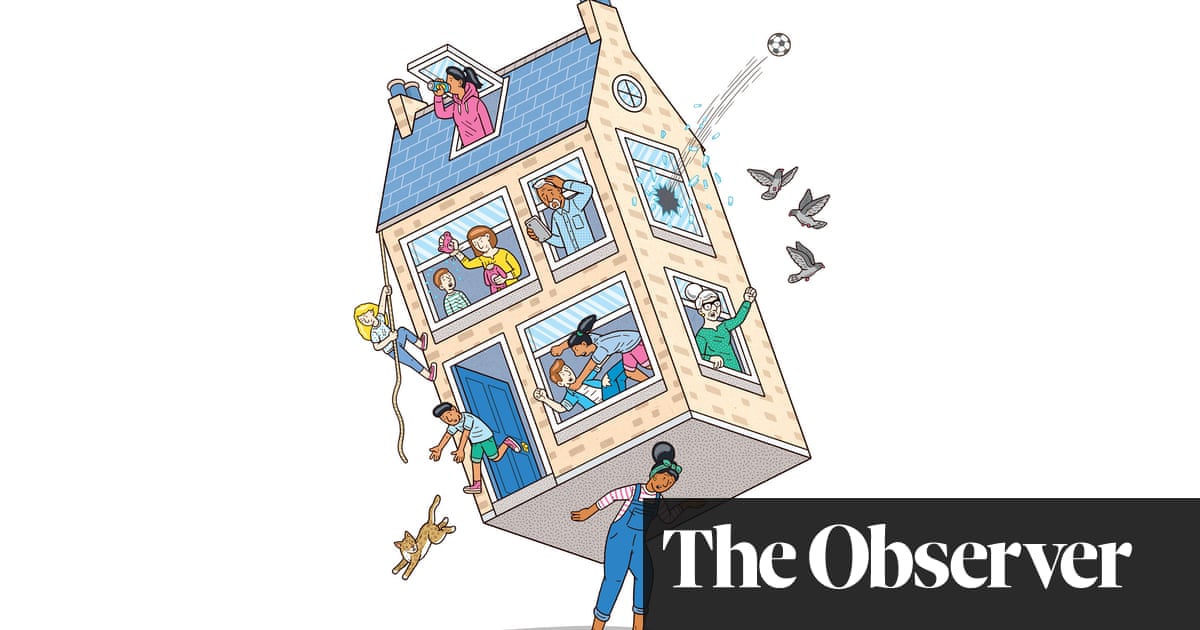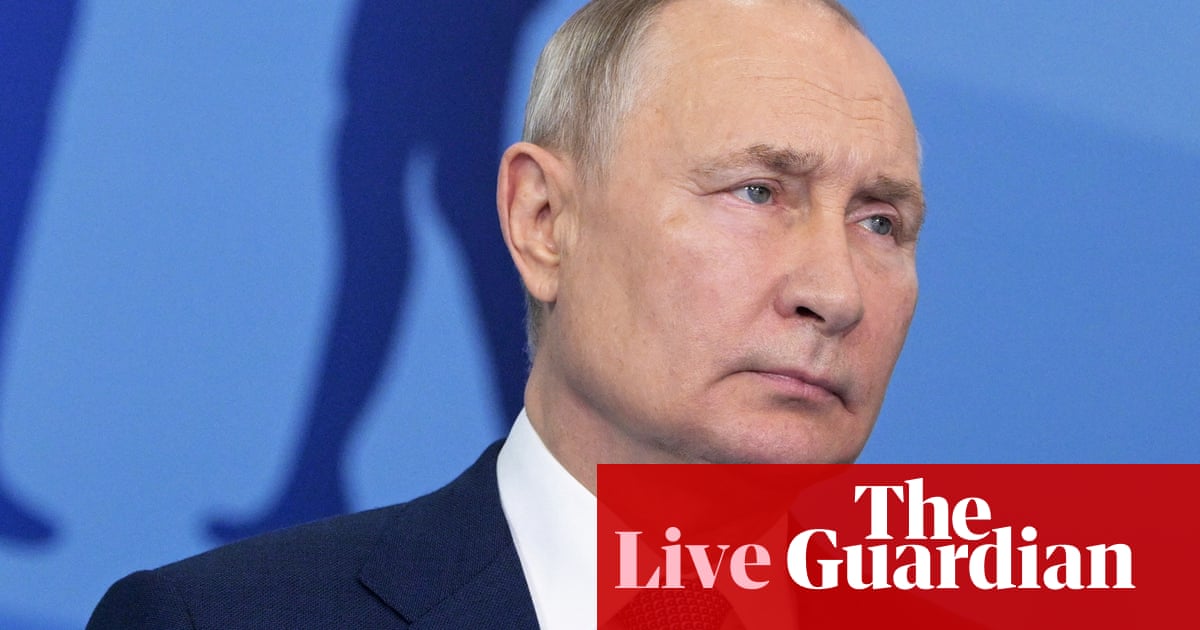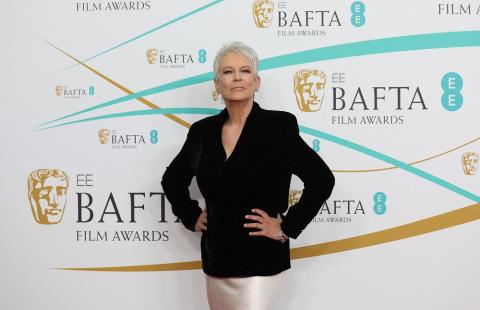
Just as a blind squirrel occasionally finds a nut, so Liz Truss has put her finger on something true. On Thursday the foreign secretary gave a speech, in which she declared: “The invasion of Ukraine is a paradigm shift on the scale of 9/11.” Like the uncanny feeling that comes on seeing a stopped clock telling the right time, it was a jolt to hear a halfway accurate assessment come from a senior member of the UK government. Still, naturally, there were things Truss did not and would not say. For one thing, what no one will call 2/24 is likely to prove even more significant than 9/11. For another, the chief value in making a comparison between this moment and the agony of September 2001 is to ensure we don’t make the same mistakes all over again.
Start with the aptness of the parallel. The attacks on New York and Washington were understood at the time as a summons to the democratic world to defend a fundamental principle of freedom. That summons is louder now, not least because the threat Vladimir Putin poses is sharper than the one represented by the 9/11 hijackers, the principle under assault clearer. By invading Ukraine, he has violated the basic concept of sovereignty and self-determination by which nations coexist. He has said that big states can gobble up smaller ones, turning their people into vassals. In that move, he has taken an axe to the way our world is ordered and the only way it can function.
The perpetrators of 9/11 were also seen as representing a deeper peril endangering our values and way of life: they were cast as a nihilistic cult that loved death as much as their targets loved life. Whatever its merits as a description back then, nihilism is a fitting way to characterise the Putinist menace now. Witness its revelling in destruction and contempt for human life, expressed in the repeated bombardment of Ukrainian civilians, even those fleeing for safety; the deliberate targeting of apartment buildings, kindergartens and hospitals, including one in Mariupol for mothers, children and babies. Read the lies about those attacks, delivered with a wink and, visible in the tweets from official Russian government accounts, a hint of a smile. Contemplate the state-generated disinformation that brazenly says day is night and night is day, that Russia’s neighbours need not fear invasion, because Russia “has not invaded Ukraine”. Watch the orchestrated rallies of young ultra-nationalists, all wearing the Z symbol as they perform their repeated right-arm salutes, even if you try to banish the obvious historic echoes. Stare all that in the face and you can’t help but conclude that what you’re looking at is indeed a cult of nihilism.
And, of course, this one matters so much more than the version that announced itself on 9/11, because this one has state power. Putinism commands a nuclear arsenal and a vast, if creaking, military. While the US and its allies were fighting the “war on terror”, Putin was advancing step by step towards this current moment, slowly choking Russia’s infant democracy at home and honing his methods abroad. The land grab on Georgia in 2008 and the seizure of Crimea in 2014; the wanton destruction inflicted on Syria, effected by means of the same pitiless battering he had meted out in Chechnya – all of it in plain sight. Putin’s invasion of Ukraine did not come out of a clear blue sky. As the BBC’s Quentin Sommerville put it, in a deeply disturbing report from Kharkiv: “If you don’t recognise these tactics, then you haven’t been paying attention.” But that was the problem: western governments were looking the other way.
Which brings us to those areas where Liz Truss feared to tread. If this truly is a paradigm shift on a par with 9/11, then the first lesson has to be: let’s not mess it up like we did last time.
One mistake will be easy to avoid. George W Bush and Tony Blair erred by unleashing the rhetoric and methods of war for what should have been a police operation. Dangerous terrorists who should have been the targets of long, intensive and complex police and intelligence work were instead elevated into martial enemies, giving them the very status they craved. No danger of that specific category error this time: this is an actual war, involving an actual state.
But the risk of misidentifying the enemy remains. Two decades ago, hawks rushed to hail a “clash of civilisations”, as if the west was destined to do battle not with a particular, narrowly defined group of violent jihadists but with Islamism if not Islam itself. That was a fateful and fatal mistake. It saw the US and UK lash out wildly, conquering Afghanistan when a special forces effort to root out al-Qaida was what was required; and, most disastrously, invading Iraq in pursuit of weapons that did not exist. It also saw a battery of domestic moves whose consequence was not the isolation and apprehension of violent jihadists alone, but the demonisation and exclusion of Muslims.
The west must not make that mistake again. It has to be specific. The battle now is against Putin and Putinism, not Russia or Russians. Severing links with institutions tied to the Kremlin makes sense; banning a course on the novels of Dostoevsky is dumb. Most Russians are themselves victims of Putinism. They are the ones who have been robbed blind by him and his henchmen; they are the ones force-fed lies. In the war against Putinism, they will be essential allies.
The Washington-based scholar and analyst Shadi Hamid believes Ukraine might serve as a wake-up call for the generation that, like him, came of age amid the fallout of 9/11. Those years left him “lukewarm and ambivalent” about US hard power, he told me this week, because he had seen it go so badly wrong, in Iraq most egregiously. The legacy of 9/11 was a preference, among American progressives at least, for “nice, fluffy things like soft power”. After Ukraine, Hamid predicts, that will change. A new generation is seeing that in order to stand up to a murderous dictator who opposes everything they believe in – from minority rights to free expression – sometimes only force will do. In other words, this latest paradigm shift is already undoing the impact of the last one.
Of course, these are very early days. The war in Ukraine will bring yet more cruelty, yet more blood. But this invasion has provoked a reaction that its architect did not predict: a western resolve that not only must Putin be stopped in Ukraine, Putinism must be defeated. It is a determination fiercer than any since 2001. This battle matters more than that one – which is why it must not re-enact its follies and must not repeat its mistakes.
Jonathan Freedland is a Guardian columnist












